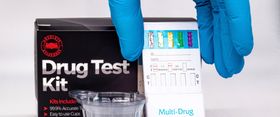Which Effects Do Reishi Mushrooms Have on Our Hormones?
Can Reishi mushrooms affect the production of estrogen and testosterone, and can this affect fertility at all?
Updated April 6, 2023.
Reishi mushrooms seem to promise a wide range of benefits with minimal reported side effects, but do they stimulate or inhibit the production of our natural male and female hormones, and can this affect fertility at all?
» Find the perfect remedy for your condition - take this short quiz
Effects of Reishi Mushrooms on Estrogen
A number of conditions, such as menopause, can lead to hormonal imbalances in women, either resulting in an increase or decrease of estrogen. The effect of Reishi mushrooms on the production of estrogen is not so black or white as to say they either increase or decrease the production in all circumstances. Instead, research has shown that they exhibit more of a modulatory effect on the hormone estrogen.
This means that they can help your body produce the correct amount of estrogen and come back to a state of balanced female hormones. This can either get rid of estrogen dominance, or produce more estrogen if it is lacking.
Effects of Reishi Mushrooms on Testosterone
The effect that Reishi mushrooms have on testosterone is different to that of estrogen. Research has shown that Reishi mushrooms are an inhibitor of an enzyme called 5-alpha-reductase, which is known for converting existing testosterone into a byproduct called dihydrotestosterone (DHT). Higher levels of DHT has been linked to male pattern baldness and a risk of prostate cancer.
Interestingly enough, evidence shows that inhibiting the conversion of testosterone into DHT has little to no effect on the amount of serum testosterone in the body. As such, Reishi mushrooms do not appear to either increase or decrease testosterone.
Effects of Reishi Mushrooms on Fertility
Although there is much anecdotal evidence that claims Reishi mushrooms can improve sex drive and fertility in humans, scientific evidence is lacking. However, there are animal studies that found a positive effect on reproductivity and sperm quality in various animal species, and so the results are promising.







